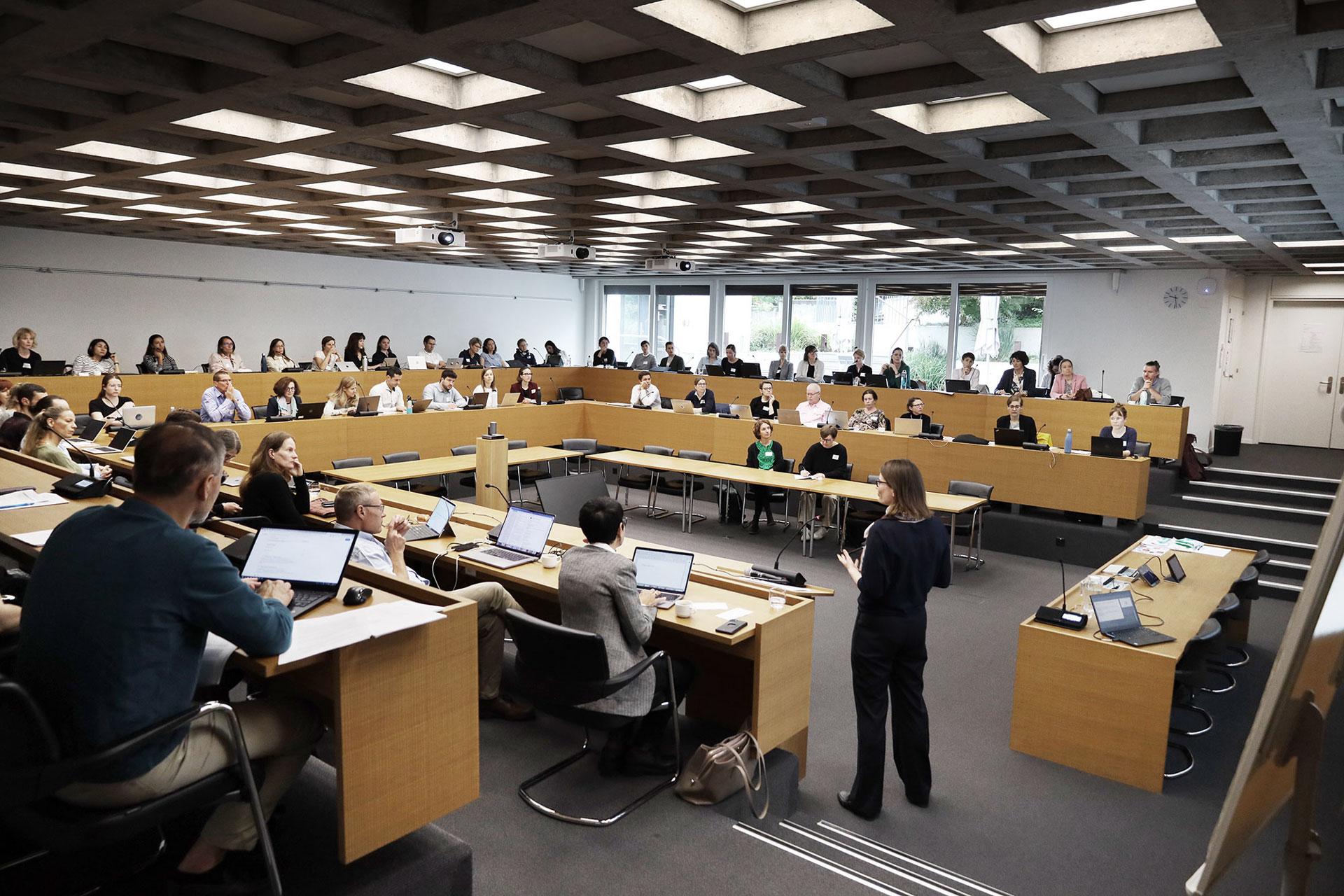A day of reflection to rethink career funding

The SNSF organised a one-day workshop to discuss the funding of scientific careers with stakeholders. These discussions should enable the SNSF to adapt its funding schemes to meet the challenges of the 21st century.
Supporting early-career researchers is one of the SNSF’s central concerns. The SNSF is constantly refining its funding schemes to reflect the day-to-day realities of researchers' lives. On 23 September, the SNSF organised a one-day workshop to discuss scientific career funding with stakeholders. Around 60 people took part in the event: members of various Swiss higher education institutions representing different functions (management, human resources, grant offices, doctoral schools, equality offices, etc.) as well as representatives of early-career researchers (both PhD students and postdocs). The aims of the workshop were to gather and identify different perspectives, to ensure the relevance of future funding measures and to initiate a long-term dialogue on the subject of careers and their funding.
Better support for early-career researchers
“One of the pressing challenges of the research system is the need to improve researchers’ working conditions and opportunities for professional development,” remarked Katrin Milzow, member of the Executive Management and Head of Research Development at the SNSF. She stressed the importance of adapting funding and evaluation mechanisms to address current needs, particularly in terms of increasing digitalisation and greater permeability of careers across professional sectors.
Since summer 2023, the SNSF has been working on developing new approaches to support researchers at the start of their careers. An analysis of the current situation has highlighted the main issues associated with scientific careers (see the news of
). Three themes were selected to guide the day's discussions: the definition of career phases and the corresponding funding eligibility criteria; the role of the SNSF with regard to employment and working conditions at higher education institutions and support for career development; and the advantages and disadvantages of international academic mobility as well as support for intersectoral mobility.
A co-creation approach
“It was important for the SNSF to opt for a co-creation approach, in which those concerned by the policies directly collaborate in their development,” emphasised Stuart Lane, president of the SNSF's Specialised Committee Careers. The day of discussions brought together the perspectives of a wide range of stakeholders across the Swiss academic landscape. “The participants contributed to a better understanding of the expectations and challenges at different phases of a scientific career. In particular, it became clear that the question of working conditions cannot be separated from that of excellent research.”
The results of this workshop will be summarised in a report and discussed by the SNSF's decision-making bodies. They will also be presented to the Delegates Assembly, the SNSF's new advisory body that represents the diverse views of the scientific community. Organising another workshop remains a possibility.
Thanks to the dedication of the participants, the day's discussions helped to build a common understanding of the challenges associated with scientific careers. Ultimately, these discussions should enable the SNSF to adapt its funding schemes to address the challenges of the 21st century, while at the same time improving working conditions for researchers in Switzerland. This is a central commitment in the SNSF's
multi-year programme.